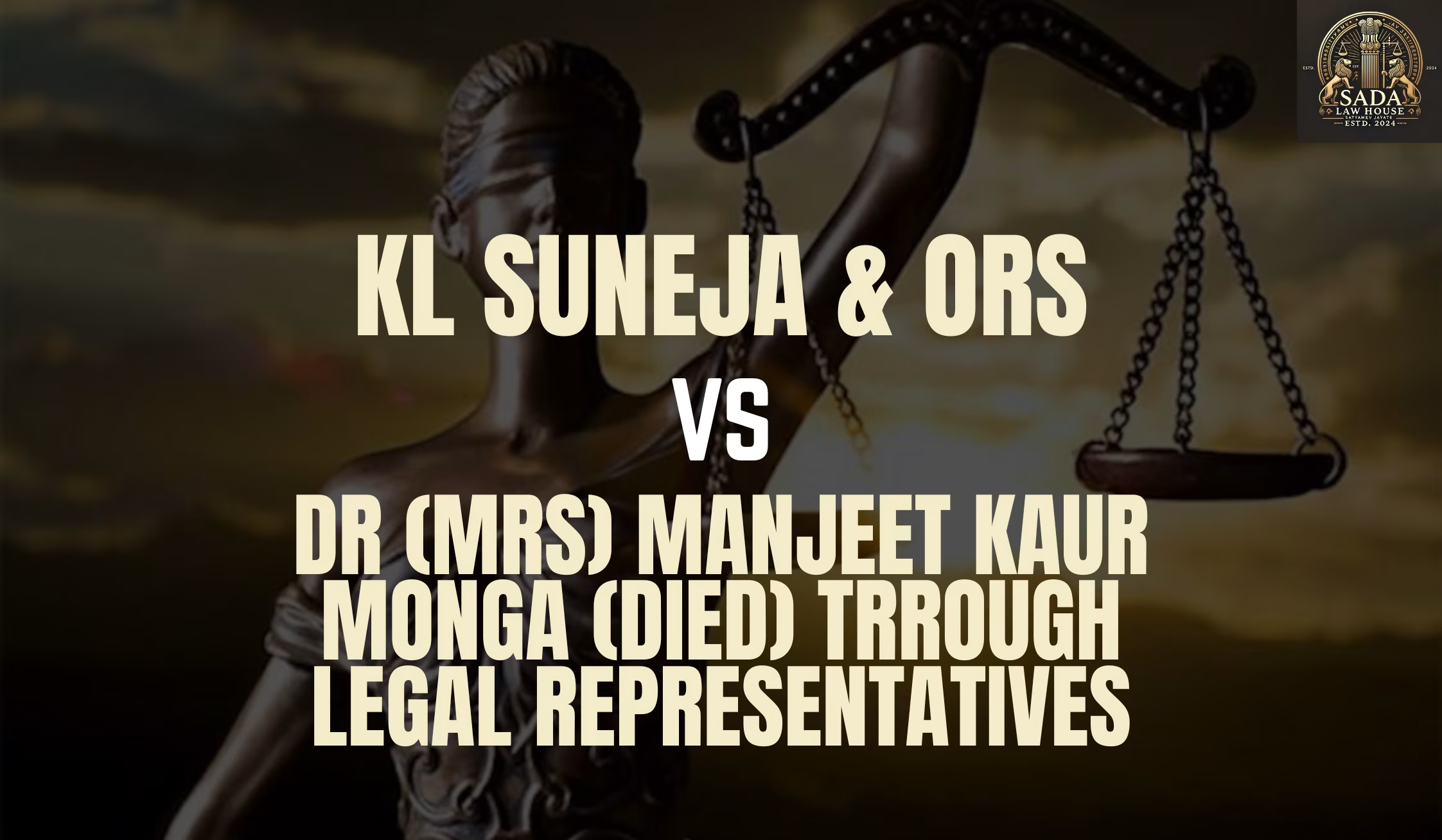Supreme Court Rules on Builder’s Liability and Mandatory Bank Deposits in K.L. Suneja v. Manjeet Kaur Monga Case (2023)
- REHA BHARGAV
- 18 June 2025

Discover the Supreme Court of India’s landmark ruling on builder liability, refund payments via bank instruments, and consumer rights in the K.L. Suneja v. Manjeet Kaur Monga case. Understand key legal principles about compound interest, possession delays, and mandatory deposits under Order XXI of the CPC.
Introduction to K.L. Suneja v. Manjeet Kaur Monga Case
The Supreme Court of India delivered a significant judgment on January 31, 2023, in the case of K.L. Suneja & Ors. v. Dr. (Mrs.) Manjeet Kaur Monga (Deceased) through legal representatives. The case addresses the legal consequences of a builder’s failure to deliver possession of a flat in the Siddharth Shila Housing Scheme, Ghaziabad, and the refund process through bank instruments.
Facts of the Case: Delayed Possession and Refund Dispute
Dr. Manjeet Kaur Monga booked an apartment in 1989 and paid ₹4,53,750 in installments. Despite the builder’s promise of possession within three years, the construction remained incomplete for over 15 years. Following repeated delays, the complainant issued a refund notice and returned the original pay order in 2005, demanding compensation for unfair trade practices and delay.
Legal Issues Addressed
The case raised critical questions, including:
Is the builder liable to pay compound interest beyond the date of the refund pay order?
Does the builder’s liability end once the refund amount is paid via bank instrument as per Order XXI of the CPC?
Are the earlier tribunal’s orders awarding post-refund interest legally sustainable?
Arguments by Both Parties
Complainant’s Position
The complainant argued that the builder’s liability should continue until full satisfaction, including possession and compensation. They claimed compound interest at 15% per annum beyond the refund date, stating that the pay order’s issuance did not constitute full discharge since it was not encashed.
Respondent’s Defense
The builder contended that refund via pay order discharged their liability under Order XXI Rule 1 of the Civil Procedure Code (CPC). They argued that no further interest was payable once the refund was made and that the complainant’s failure to encash the pay order did not prolong liability.
Supreme Court Judgment Summary
Justice S. Ravindra Bhat, delivering the judgment, ruled in favor of the builder, setting aside the order granting compound interest beyond the refund date. Key points from the judgment include:
Liability discharges upon refund payment through a valid bank instrument, regardless of whether it is encashed.
The complainant’s failure to encash the pay order means no further interest or compensation can be claimed.
The earlier direction for post-refund interest was quashed.
The complainant’s cross-appeal for additional relief was dismissed.
Legal Significance and Conclusion
This Supreme Court ruling clarifies that builders’ liability ends once refund payments are made through bank instruments, emphasizing the finality of payment under Order XXI Rule 1 CPC. It protects builders from indefinite claims of interest after refund and highlights the importance of encashing refund instruments promptly by complainants.
The judgment sets an important precedent for consumer rights, property disputes, unfair trade practices, and refund procedures in real estate litigation.
Key Takeaways
Refunds through pay orders or similar bank instruments legally discharge the payer’s liability.
Complainants must encash refund instruments timely to preserve their rights.
Builders are not liable for compound interest beyond the refund date once payment is made.
Order XXI of the Civil Procedure Code (CPC) governs the discharge of monetary liability in such cases.
Case Laws






